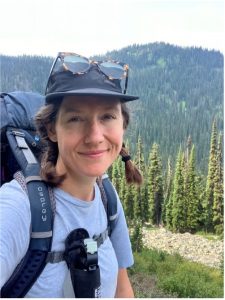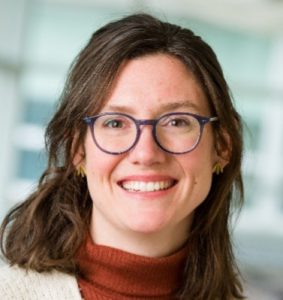Natalie Forssman
Who or what sparked your initial interest in the Scholarship of Teaching and Learning?
I was first introduced to educational research during my graduate studies in Communication and Science Studies. Questions about how knowledge is generated and shared—and the institutions, politics, and everyday routines involved in those processes of insight, translation, and negotiation—have always fascinated me. As a researcher, I was drawn to anthropology and ethnographic methods because I am fascinated by the intricate nuances of how people interact, communicate, and come to shared understandings. The Scholarship of Teaching and Learning interested me for how it asks empirical and specific questions about what goes on in the places and processes of learning.
What SoTL project are you currently engaged in and excited about?
I’m involved in helping design and deliver the Bachelor of Sustainability, an exciting new interdisciplinary undergraduate program where students learn and apply ideas and methods from across the arts, social, and natural sciences to pressing social and ecological problems such as biodiversity loss, the climate crisis, and environmental injustice. With my colleague Vikas Menghwani, we are investigating what skills and competencies students learn in their classes (and in outside-the-classroom experiences) that set them up to be good interdisciplinary collaborators. I firmly believe that complex socio-ecological problems require a diversity of ways of asking and answering questions to find workable solutions. This SoTL work aims to understand whether and how we are equipping future changemakers to work together across different ways of knowing, and help us improve our teaching of interdisciplinarity.
What questions in SoTL are you excited to answer in the future?
Community-engaged learning is a developing interest and focus for me in my teaching and educational leadership, and a core part of the Bachelor of Sustainability degree. The Scholarship of Engagement explores how university-community relationships are structured, institutionally supported and incentivized, and what values inform them. I am keenly interested in understanding how community-university partnerships, as expanded spaces of teaching and learning, can be designed to benefit both learners and the community, and how community partners can meaningfully steer the development and priorities of such partnerships. For future SoTL projects, I am interested in more fully leaning into my training in the critical social sciences and humanities. Much SoTL work sits within a positivist social science framework, and I’m interested in bringing in methods and research approaches that employ anthropological and creative methods.
Why should others get involved in SoTL?
Interdisciplinary spaces, where multiple methodologies and paradigms intersect and interact, are truly dynamic, challenging, and generative. SoTL is such a field where scholar-teachers from across disciplines can work on common questions and learn from other disciplines and methodologies in designing approaches to answer those questions. As part of a university community, we are all involved in teaching and learning in some form, and so why shouldn’t we turn our gaze as scholars and researchers to questions about this work we engage with daily? To me, this field really encapsulates what is exciting about research and working in higher education – that we can generate questions and ideas about the places we are in, and examine and make better the social worlds, institutions, and power relations we ourselves participate in.

On a recent backpacking trip to Mount Revelstoke National Park with my daughter.
If you’re interested in hearing more about Dr. Forssman’s projects, or wanting to collaborate on other projects, connect with her at natalie.forssman@ubc.ca.
